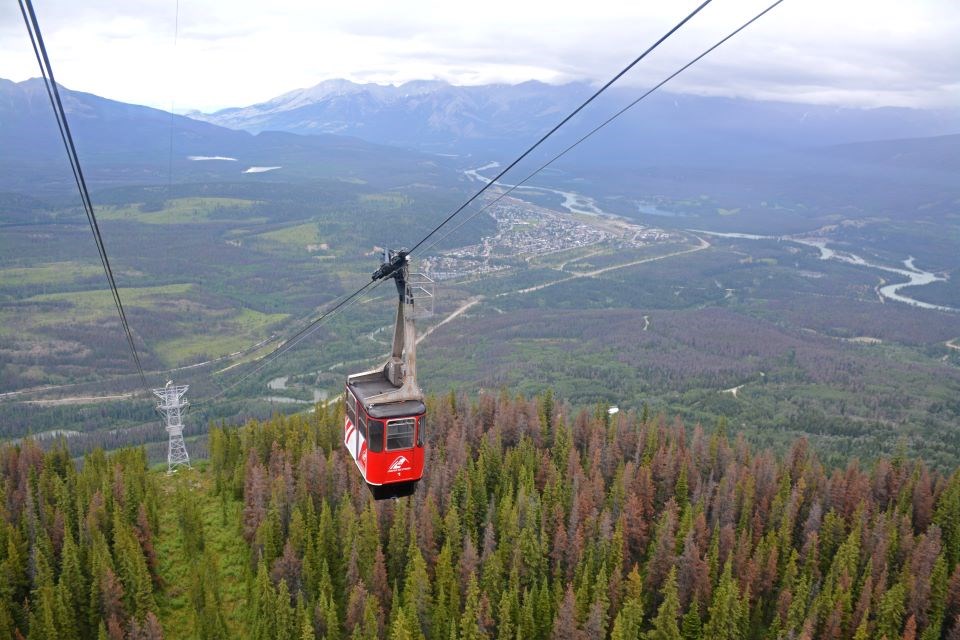High winds may have shut down at the Jasper SkyTram on May 7, but it did bring in an unexpected attraction for those who were still on the 2,227-metre summit of Whistlers Mountain.
A helicopter was called in for an evening ride to ferry more than 20 staff and guests back down to level ground after an extended stay of several hours at the peak.
Todd Noble, general manager of the Jasper SkyTram, said that the winds were consistent from just after noon all the way past the supper hour. They just would not let up, either.
“It was sitting around 7:15 p.m. that we had to analyze the timeline situation and make the call,” he said.
That call for the helicopters wasn’t just directly due to the winds. Electrical faults were also observed, which are typically a result of the wind pushing the metal rope against something else that is metal.
Noble elaborated that the SkyTram operations have extensive safety protocols, and every point on the checklist must be marked off before things go in motion.
“We decided to use [the helicopters] understanding the amount of people that we had on the hill, how much time we had left in daylight and taking into consideration the electrical problem was not rectified.”
As much of a surprise as it was for those guests, it’s not entirely uncommon for the system to shut down. As Noble says, “Wind systems … they happen all the time.”
For a wind system to last for eight-plus hours, however, that was a little uncommon.
A safety setting kicks in when winds reach 45 kph. The operation has both an upper and lower anemometer stations to observe wind speed. Often, the two have different readings. On that day, the reading at the top was going up towards 60 kph, but between the two is a grey area. That grey area was where most of the wind was occurring.
Using other visual methods including binoculars and monitoring how much the ropes were swaying, they suspected that the winds could have been up to 80 kph. That was fast enough, and the fact that they weren’t slowing down was another compelling factor.
All these safety protocols meant that no one was at risk.
“We weren't caught on the line with those strong winds,” Noble said. “We didn't have people on the line. We had them all docked and in the station.”
The wind eventually blew itself out, and things returned to business as usual the next day.
Noble said SkyTram staff are always vigilant about the weather. It’s the first summer attraction to open, and opening day was right at the Spring Equinox when the weather is in major flux.
“It's pretty typical to have those colder, low pressures getting pushed out by winds of the high pressure: the warmer high pressure coming in,” he said.
“It's a typical situation, but everything's going good. We'll go on standby every now and then, so it happens.”



